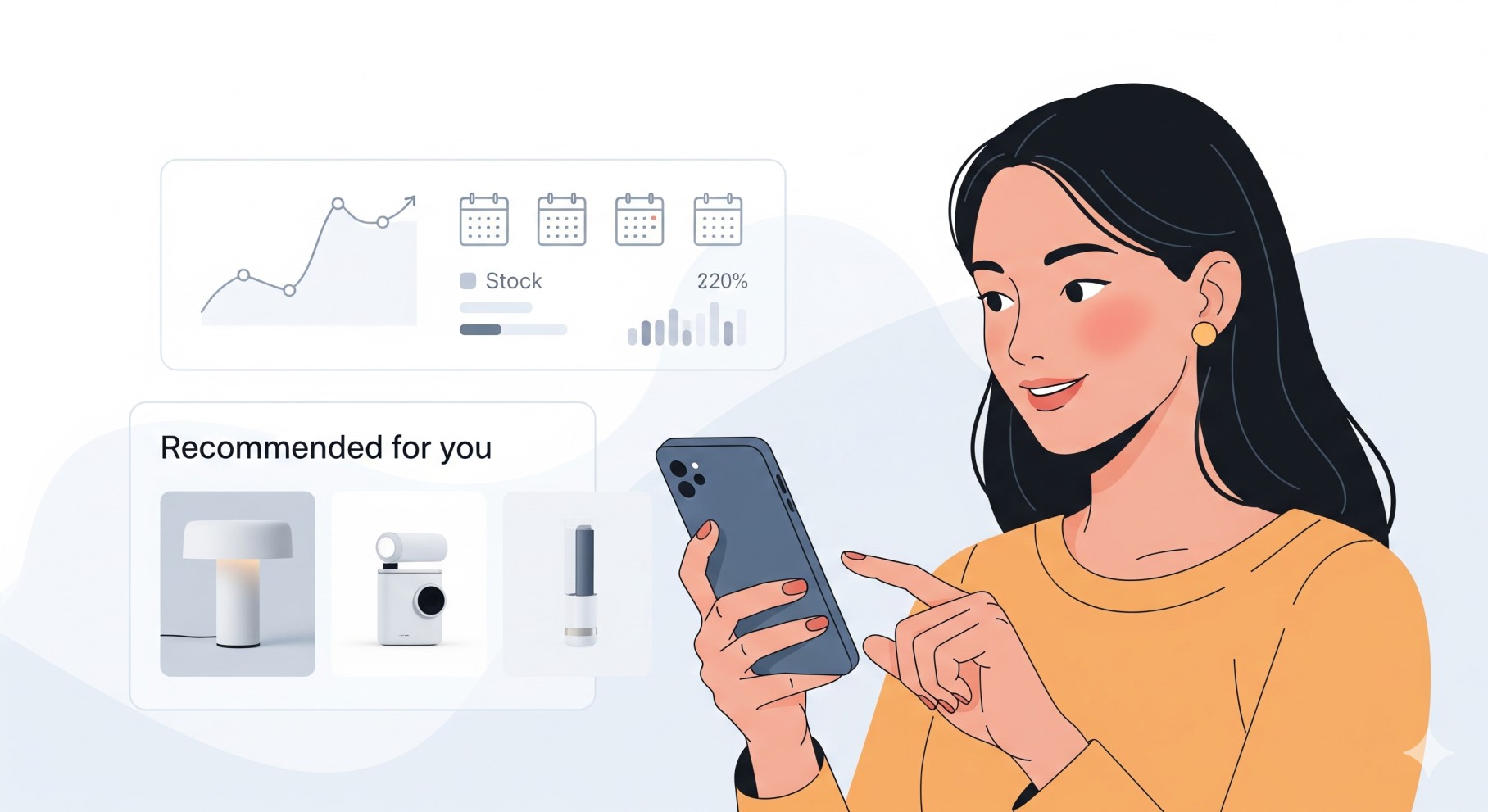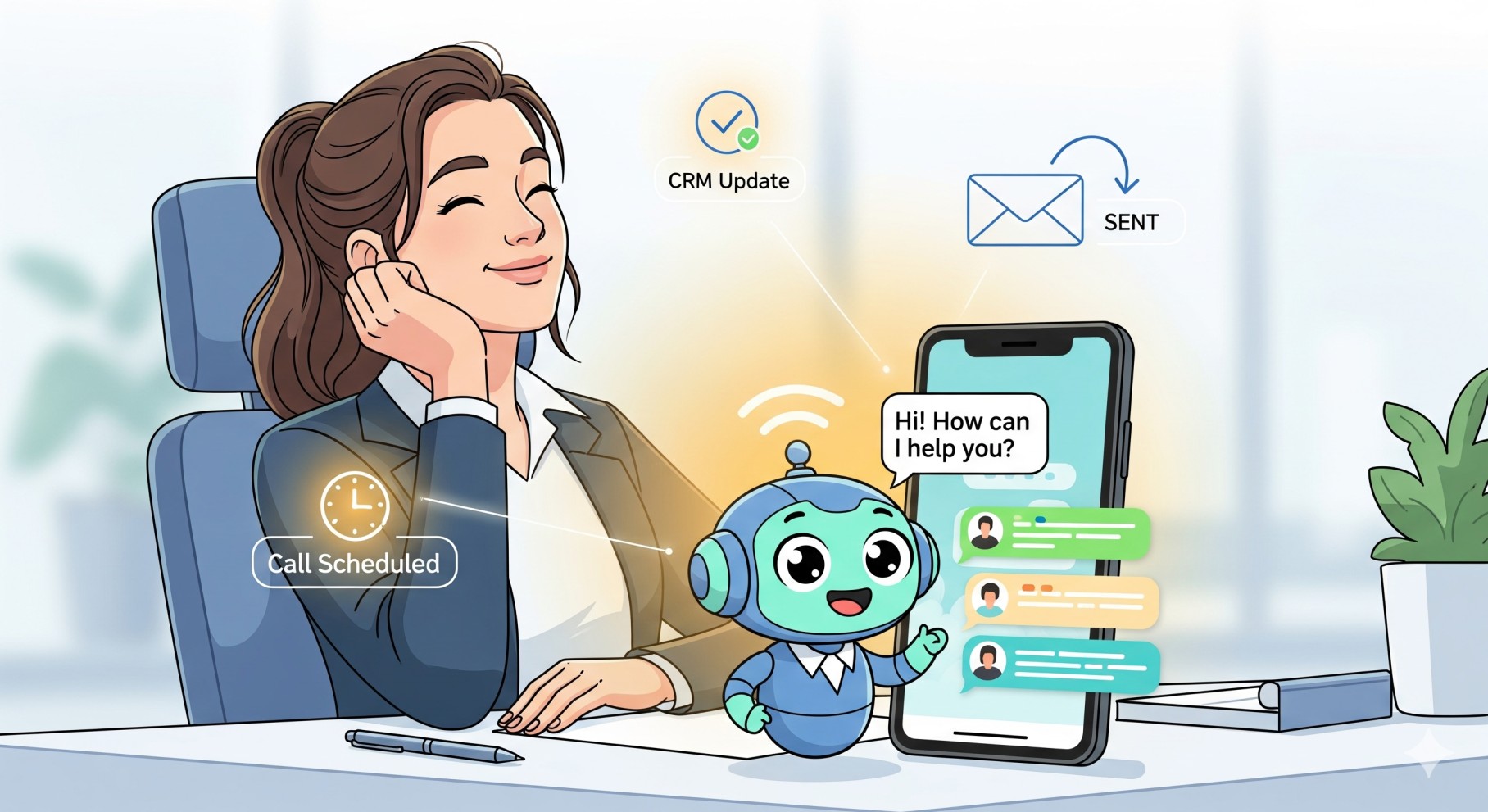Sales has always been about relationships-listening, understanding, and offering the right solution at the right time. But in today's fast-paced digital economy, sales teams face more pressure than ever to connect with prospects, personalize conversations, and close deals efficiently. That's where AI for sales is stepping in and customers love the difference it makes.
From predicting buyer behavior to automating tedious tasks, artificial intelligence is transforming the sales process into a smarter, faster, and more customer-friendly experience. In this blog, we'll dive into the five top use cases of how AI works in sales, along with real-life examples that show how businesses are using it to boost revenue and retention.
1. Lead Scoring and Qualification
One of the toughest challenges in sales is figuring out which leads are worth pursuing. Traditional methods rely heavily on intuition, but AI adds precision.
AI-powered lead generation systems analyze huge amounts of data-website visits, email engagement, demographics, and even past interactions-to rank leads based on their likelihood to convert. This means sales representatives can focus their energy where it truly matters.
Real-Life Example:
HubSpot, Apollo and PerfectCSR uses AI-driven lead scoring to help businesses prioritize leads with the highest conversion potential. Instead of wasting time on "maybes," sales teams know exactly who's ready to buy.
Why Customers Love It:
When sales reps reach out only when customers are genuinely interested, the conversation feels timely and relevant-not pushy. Beyond efficiency, it builds trust-customers feel like the brand understands their journey. This creates a natural flow from curiosity to conversion, without the friction of cold calls or irrelevant follow-ups.
Smarter Selling Starts Here
AI isn’t just for big companies. Sales teams of any size can use it to work faster and connect better.
Get Started2. Personalized Customer Engagement
Customers expect more than generic pitches, they want solutions tailored to their needs. AI enables personalized outreach at scale.
By analyzing buying behavior, preferences, and even past complaints, AI helps sales teams create messages that resonate. Whether it's a chatbot greeting a returning visitor by name or an AI tool suggesting the perfect product, personalization drives connection.
Real-Life Example:
Amazon's recommendation engine is a classic AI success story. By analyzing browsing and purchase history, it suggests items that feel handpicked. The result? Customers often discover products they didn't even know they needed.
Why Customers Love It:
Personalized engagement makes people feel valued. Instead of being just another email in the inbox, your message feels like it was written just for them. That personal touch transforms interactions into relationships, encouraging repeat purchases and deeper brand loyalty. Customers are more likely to buy when they feel seen and understood.
3. Sales Forecasting and Insights
Forecasting has always been a tricky game. But with AI, predictions are no longer just educated guesses, they're data-driven insights.
AI-powered forecasting tools look at historical sales data, market trends, seasonality, and even competitor behavior to predict what's coming next. This gives businesses the power to make smarter decisions about inventory, staffing, and strategy.
Real-Life Example:
Coca-Cola utilizes AI to better predict demand for its beverages. This helps them keep shelves filled with the correct beverages at the correct moment, avoiding shortages as well as waste.
Why Customers Love It:
Accurate forecasting means fewer delays, better availability, and smoother experiences. Customers get what they need, when they need it. It also builds reliability-consumers trust businesses that consistently deliver without hiccups. This reliability translates into stronger relationships and long-term customer retention, since availability directly impacts satisfaction and brand reputation.

4. Automating Repetitive Tasks
Sales representatives often spend hours on manual tasks updating CRMs, sending follow-up emails, or scheduling calls. AI-powered automation tools take over these repetitive jobs so reps can spend more time actually selling.
Real-Life Example:
Salesforce's Einstein AI automates data entry and follow-ups. Instead of typing notes, representatives can focus on conversations that matter.
Why Customers Love It:
Automation means faster responses and fewer dropped balls. When businesses stay on top of every inquiry, customers feel heard and valued. The speed of service gives them confidence that the brand is attentive and organized. Smooth, uninterrupted communication builds confidence, encouraging customers to return for repeat business without hesitation.
5. Conversational AI and Chatbots
Perhaps the most visible AI tool in sales today is the AI chatbot. Modern conversational AI doesn't just answer questions, it guides prospects through the sales funnel, nurtures relationships, and even closes deals.
Chatbots can:
- Greet visitors instantly
- Qualify leads with smart questions
- Provide product demos or recommendations
- Hand off conversations to human agents at the right time
Real-Life Example:
Formless Beauty's chatbot helps customers find beauty products, and get personalized recommendations, all without waiting for a sales associate.
Why Customers Love It:
Chatbots make shopping seamless. Customers don't have to search endlessly; instead, they're guided step-by-step, almost like having a personal sales assistant. This instant support creates delight-no hold times, no frustration. A smooth chatbot experience reflects a brand's commitment to innovation and service, leaving customers with a positive impression they want to share.

Why AI for Sales Works
All five use cases share one common outcome: AI makes the sales experience better for both businesses and customers.
- Businesses save time and money.
- Sales reps focus on meaningful conversations.
- Customers enjoy faster, more personalized, and stress-free interactions.
When customers feel understood and supported, they're more likely to stay loyal, recommend your brand, and keep coming back for more.
Building Customer-Centric Sales with AI
The verdict is clear: AI is no longer a futuristic add-on, it's the backbone of modern sales. From smarter forecasting to personal chatbots, AI empowers businesses to serve customers better, close deals faster, and build relationships that last.
At PerfectCSR, we create AI solutions that put customers first. Our intelligent chatbots and automation tools help businesses simplify sales, boost engagement, and drive retention-all while staying true to their CSR values.
Boost Sales with AI
From lead scoring to chatbots, AI tools make every step of the sales journey smoother. Give your team the right tools to close more deals with less effort.
Try It NowFAQs
Will AI replace salespeople?
Not at all. AI is here to support salespeople, not replace them. It handles repetitive tasks so humans can focus on building real relationships.
Is AI in sales expensive to implement?
Not necessarily. Tools like chatbots and AI-driven CRMs are scalable, making them accessible to both startups and large enterprises.
Do customers trust AI-driven interactions?
Yes, when implemented transparently and ethically. Customers appreciate speed, personalization, and accuracy.
What industries benefit most from AI in sales?
E-commerce, SaaS, retail, real estate, and healthcare see some of the biggest gains, but any sales-driven business can benefit.
How can small businesses start using AI in sales?
Begin with affordable tools like chatbots or AI-driven email personalization. Over time, scale into forecasting and automation solutions.
